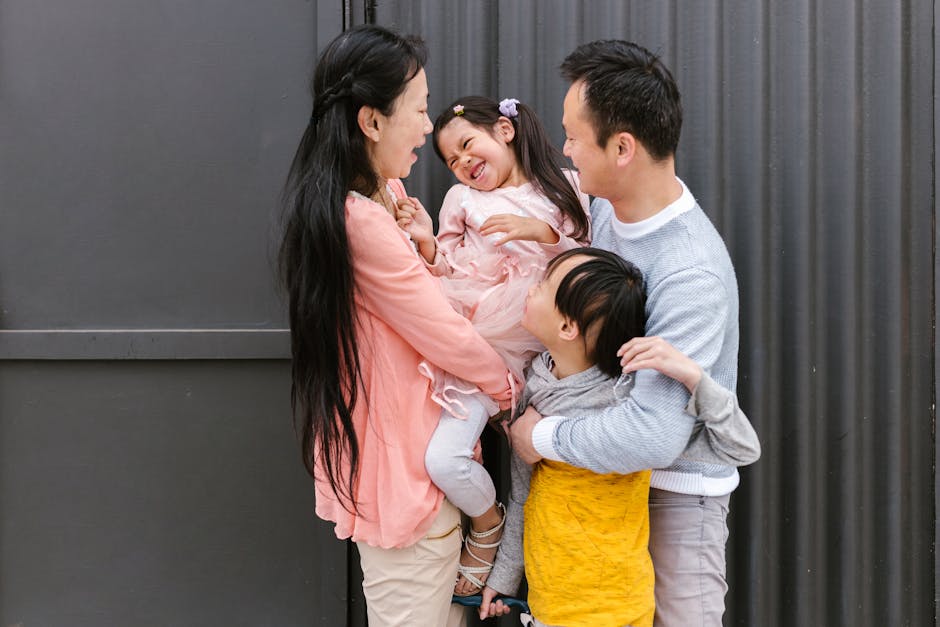Families, the bedrock of society, are complex ecosystems where the well-being of each member intertwines with the others. While the needs of parents and children are often foregrounded, numerous other voices within the family unit frequently remain unheard or unaddressed. This article explores the often-neglected needs within families, examining why they are overlooked, and what steps can be taken to foster a more balanced and supportive environment.
The conventional focus on parents and children often overshadows the needs of other family members, particularly those in the middle ground. This includes adolescents, who are navigating the turbulent transition from childhood to adulthood, and grandparents, whose contributions are frequently understated. Siblings, too, often fall into the background, their needs and emotional complexities often overlooked amidst the priorities of individual children and parental duties.
A crucial factor in understanding this phenomenon lies in the differing stages of development and the accompanying emotional needs. Young children require consistent care, security, and emotional validation, while adolescents crave independence and autonomy, often pushing against the perceived limitations imposed by family structures. This often leads to conflict and strained communication, particularly when parents struggle to adjust their approach to meet these evolving needs. This conflict can manifest as a strained relationship, a sense of not being heard, or a feeling of isolation and loneliness within the family.
Grandparents, often relegated to the role of supportive figures or infrequent visitors, may feel their contributions go unrecognized. Their expertise and accumulated wisdom can provide invaluable support, but their emotional needs are frequently overlooked. They might need assistance in managing their health and mobility, experiencing loss and grief, or simply feeling connected to their family in ways that nurture their sense of purpose and belonging.
Beyond these established generations, the overlooked needs within families can extend to a variety of other circumstances. Extended families, including aunts, uncles, and cousins, play significant roles in the lives of many children and adolescents, often providing crucial emotional support and enriching experiences. However, their needs are frequently minimized, or their involvement restricted by a perceived focus on immediate family needs. Often, these individuals are simply not factored into the family’s balance sheet of needs. Likewise, single-parent households, and families navigating significant life changes like divorce, or the presence of special needs children, often find themselves stretched thin, making it difficult to identify and address the needs of every member.
Cultural norms and societal expectations also play a role. Traditional gender roles can constrain the expression of emotional needs, particularly for men, who may be discouraged from seeking help or expressing vulnerability. Likewise, cultural pressures can limit the options available to individuals seeking support, and some families struggle to adapt to the emotional complexities inherent in these shifting cultural forces.
Addressing these overlooked needs requires a fundamental shift in mindset. Families need to move beyond a hierarchical model, where the needs of certain members take precedence, and cultivate a more egalitarian approach. This requires open communication, active listening, and a willingness to acknowledge and validate the emotions of all members. Families should proactively seek to understand the unique circumstances and developmental stages of each member, fostering an environment where every individual feels valued, understood, and heard.
Creating a supportive environment involves creating opportunities for individual expression and recognition. Regular family meetings, where everyone has a voice, can help address unspoken concerns and foster a sense of shared responsibility. Actively listening to and validating the feelings of every member, regardless of age or role, can significantly improve family dynamics. Encouraging open communication, and actively creating space for these conversations without judgment, fosters a healthy and supportive environment.
Recognizing the need for external support is also vital. Seeking guidance from therapists, counselors, or support groups can provide families with the tools and strategies necessary for navigating complex emotional landscapes. Professional assistance can help identify underlying issues, develop coping mechanisms, and facilitate more constructive communication patterns.
In conclusion, the needs of numerous family members often fall through the cracks of family life. By acknowledging the importance of every voice, from grandparents to siblings, and by fostering open communication, families can create more balanced, supportive, and understanding environments where every individual’s needs are met. A proactive approach, coupled with a willingness to seek external support, can transform families into nurturing ecosystems where each member thrives, rather than silently struggling in the shadows. It’s time to recognize that true family strength lies not in neglecting the needs of certain members, but in embracing the interconnectedness and fostering the well-being of everyone.
